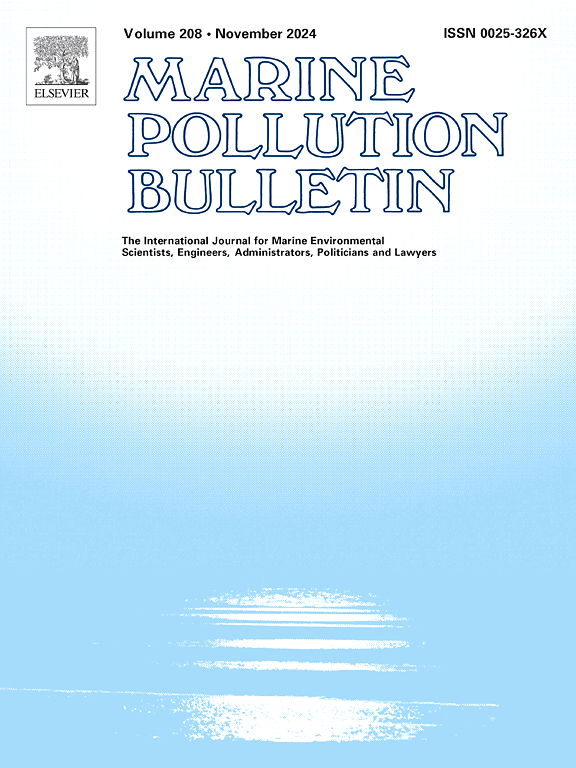减轻海上含油废水污染:可持续的处理、处置和再利用策略
IF 4.9
3区 环境科学与生态学
Q1 ENVIRONMENTAL SCIENCES
引用次数: 0
摘要
含油废水是石油油气生产的主要副产物,如果不进行有效处理,将造成严重的环境风险。本文分析了含油废水的组成,评估了目前的处理方法,并探讨了在降低资本和运营成本的同时提高效率的策略。这项工作证实的数据表明,综合治疗系统比单一方法更有效。反渗透(RO)、正渗透(FO)和膜蒸馏(MD)等基于膜的技术在提高污染物去除和能源效率方面表现出了很大的希望。然而,持续存在的挑战,如膜污染、高资本和运营成本以及膜稳定性,需要在材料开发和混合系统设计方面进一步创新。这篇综述强调了设计良好的混合系统在海上含油废水处理中的潜力。这样的系统可以大大提高污染物的去除,同时最大限度地减少能源消耗和运营成本。克服技术挑战,推进膜技术的发展,将是提高含油废水处理的可持续性和成本效益的关键。本文章由计算机程序翻译,如有差异,请以英文原文为准。
Mitigating offshore oily wastewater pollution: Sustainable strategies for treatment, disposal, and reuse
Oily wastewater, a major byproduct of petroleum oil and gas production, poses serious environmental risks if not effectively treated. This review analyses the composition of oily wastewater, assesses current treatment methods, and explores strategies to improve efficiency while reducing capital and operational costs. Data corroborated from this work suggests that integrated treatment systems are more effective than single-method approach. Membrane-based technologies such as reverse osmosis (RO), forward osmosis (FO), and membrane distillation (MD) show promise in improving pollutant removal and energy efficiency. However, persistent challenges such as membrane fouling, high capital and operational costs, and membrane stability necessitate further innovation in materials development and hybrid system design. This review highlights the potential of well-designed hybrid systems for offshore oily wastewater treatment. Such systems can significantly enhance contaminant removal while minimising energy consumption and operational costs. Overcoming technical challenges and advancing membrane technologies will be essential for more sustainable and cost-effective oily wastewater treatment.
求助全文
通过发布文献求助,成功后即可免费获取论文全文。
去求助
来源期刊

Marine pollution bulletin
环境科学-海洋与淡水生物学
CiteScore
10.20
自引率
15.50%
发文量
1077
审稿时长
68 days
期刊介绍:
Marine Pollution Bulletin is concerned with the rational use of maritime and marine resources in estuaries, the seas and oceans, as well as with documenting marine pollution and introducing new forms of measurement and analysis. A wide range of topics are discussed as news, comment, reviews and research reports, not only on effluent disposal and pollution control, but also on the management, economic aspects and protection of the marine environment in general.
 求助内容:
求助内容: 应助结果提醒方式:
应助结果提醒方式:


